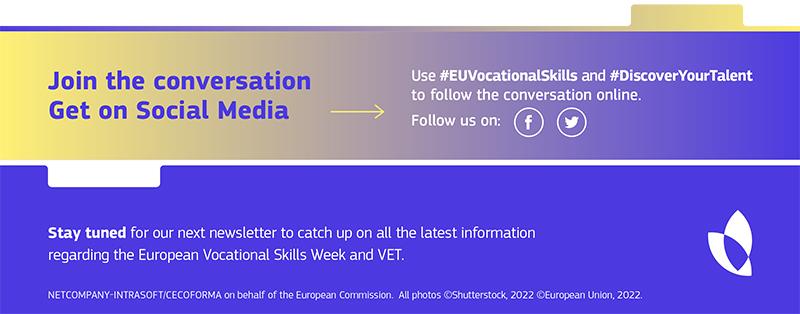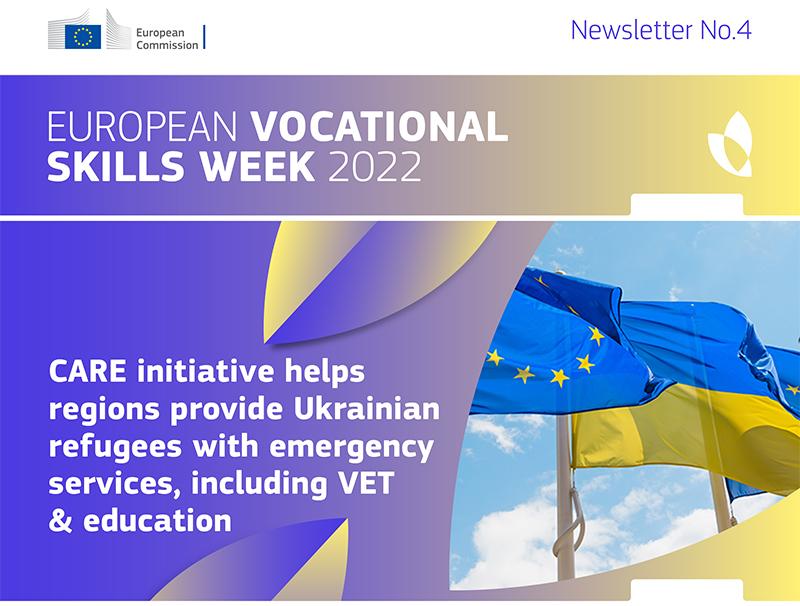
The European Commission adopted on 8 March a proposal for a Cohesion’s Action for Refugees in Europe (CARE) under the 2014-2020 Cohesion policy to provide support through cohesion funding to persons fleeing from the Russian military invasion of Ukraine.
The European Social Fund (ESF) can already in its current shape extend support to refugees and migrants, as it is the European Commission’s main tool for investing in people and for promoting inclusion into the labour market. The temporary protection directive further widens the scope of who and how soon ESF-funded actions can help persons fleeing from Ukraine, so that they can have immediate access to the labour market.
Measures that the ESF can fund specifically are actions linked to social inclusion, employment, and education. For migrants and refugees, this may include language courses, notably job oriented language courses provided at the earliest stage possible after arrival for rapid integration. The ESF can also help fund mainstream education, adult-learning systems, as well as vocational training that respond to labour market demands and fund methods and instruments to recognise migrants’ qualifications in the recipient Member States.
The CARE proposal aims to increase flexibility to cohesion funding, specifically through the ESF and the European Regional Development Fund (ERDF) to make the most of existing resources and address challenges arising from the Ukrainian crisis.
- For further information, see Ukraine: Cohesion funding to support people fleeing Russia’s invasion of Ukraine | European Social Fund Plus.
- Also read: Measures in support of pupils and educational staff fleeing Ukraine following the Russian invasion.
New taxonomy of skills for the green transition
The European Commission has published a taxonomy (classification system) of skills for the green transition in European Skills, Competences, Qualifications and Occupations (ESCO).
It includes 381 skills, 185 knowledge concepts and 5 transversal skills considered most relevant for a greener labour market. Examples of ‘green skills’ include how to conduct energy audits, measure the sustainability of tourism activities, as well as training staff on recycling programmes. Examples of ‘green knowledge’ concepts include emission standards and ecological principles. ‘Green transversal skills’ include, for instance, the evaluation of the environmental impact of personal behaviour and the adoption of ways to boost biodiversity and animal welfare.
The taxonomy contributes to a common understanding of which skills are needed for a successful and fair green transition in the labour market. ESCO provides information on which skills and knowledge concepts are essential or optional for specific occupations. In this way, it helps identify green elements that should be part of vocational education and training (VET) programmes preparing for these occupations.
For example, ESCO demonstrates how conducting energy audits is a ‘green skill’ that is essential for occupations such as those of energy analysts and energy assessors, while it is optional for some other occupations, such as those of marine engineering drafters or vessel engine assemblers. Therefore, the taxonomy of skills for the green transition is an important point of reference when it comes to making VET fit for a greener future.
All the skills and knowledge concepts are freely available in different formats and in 27 languages. More information about this work can be found on the ESCO website.
A report listing all the green concepts can be downloaded here.
EAfA publishes 10 good reasons for SMEs to invest in apprenticeships
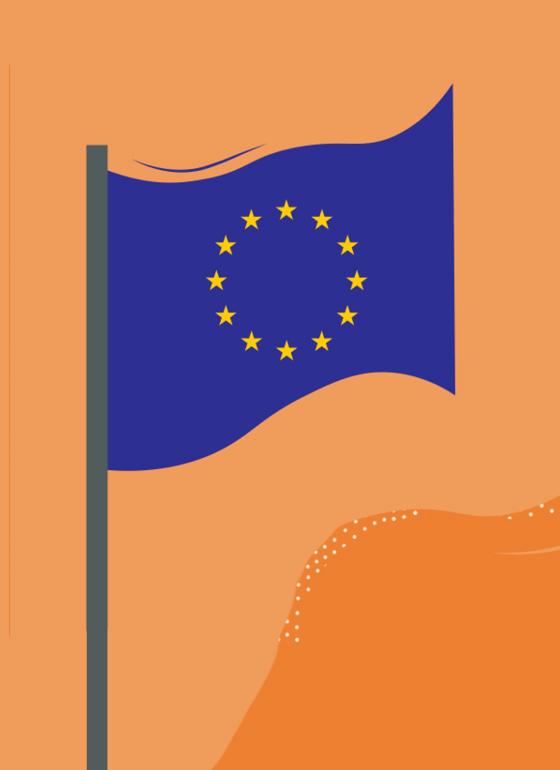
The European Alliance for Apprenticeships (EAfA) has published a new document titled 10 good reasons for small and medium-sized enterprises (SMEs) to invest in apprenticeships.
The publication addresses SMEs, which may not be aware of the positive aspects of hiring apprentices and may face several challenges that prevent them from becoming engaged with apprenticeships and EAfA. These include limited capacity, lack of employees dedicated to training and apprenticeships, and language barriers.
The new EAfA publication outlines the different benefits that apprenticeships can bring SMEs, such as improving employee retention, the introduction of new ideas and perspectives, boosting a company’s ability to innovate, and more. With these 10 important tips, EAfA also aims to inform SMEs how they can receive help and support to make the process of hiring apprentices as easy as possible.
Fit for the new digital age: the updated Digital Competence Framework (DigComp 2.2)
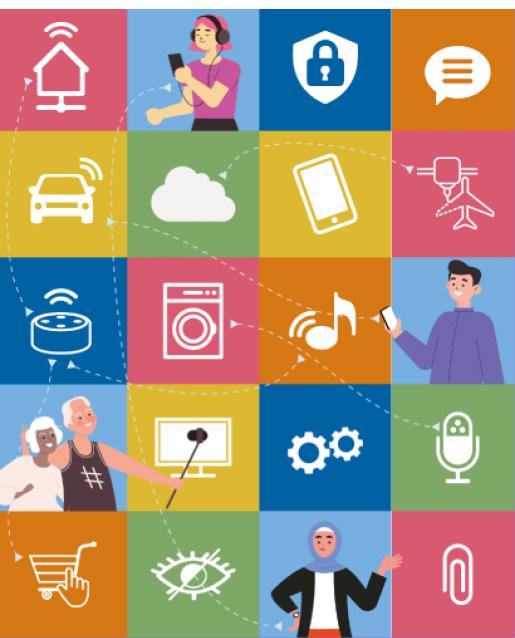
The European Commission has published the latest update of the Digital Competence Framework for Citizens (DigComp 2.2), providing a common understanding of which digital competences EU citizens need, in view of the latest technological advancements since the last update in 2016.
DigComp 2.2 takes into account emerging technologies, such as artificial intelligence (AI), virtual and augmented reality, robotisation, the Internet of Things (IoT), datafication and other phenomena, such as online misinformation and disinformation, which together have led to new and increased digital literacy requirements.
Building on the success of DigComp, which is recognised as the EU-wide framework for developing and measuring digital competence, the latest edition aims to continue to serve as a basis for framing digital skills policy, curricula development and the assessment of digital skills, both in the education sphere and in the labour market.
The updated DigComp also informs EU policymaking and helps realise the EU’s digital transformation goals until 2030 - including equipping at least 80 % of citizens with basic digital skills and growing the number of ICT specialists to 20 million by 2030 – as outlined in the EU’s Digital Compass for Europe’s Digital Decade.
The updated framework will also help boost further initiatives, such as the Skills Agenda, the Digital Education Action Plan, and the European Pillar of Social Rights Action Plan, while also encompassing the green and sustainability aspects of interacting with digital technologies in view of the green transition.
VET events and activities
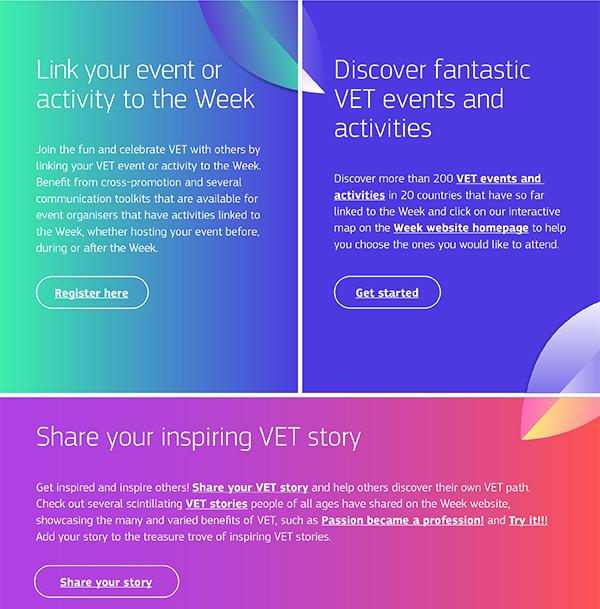
Link your event or activity to the Week
Join the fun and celebrate VET with others by linking your VET event or activity to the Week. Benefit from cross-promotion and several communication toolkits that are available for event organisers that have activities linked to the Week, whether hosting your event before, during or after the Week.
Discover fantastic VET events and activities
Discover more than 200 VET events and activities in 20 countries that have so far linked to the Week and click on our interactive map on the Week website homepage to help you choose the ones you would like to attend.
Share your inspiring VET story
Get inspired and inspire others! Share your VET story and help others discover their own VET path.
Check out several scintillating VET stories people of all ages have shared on the Week website, showcasing the many and varied benefits of VET, such as Passion became a profession! and Try it!!!
Add your story to the treasure trove of inspiring VET stories.
EU Green Week is back! It is the biggest annual event on European environmental policy
Taking place 30 May – 5 June, EU Green Week 2022 will be an exceptional opportunity to engage with numerous stakeholders and interested citizens (that means you!) on how we can work together and play an active role in making Europe’s future greener.
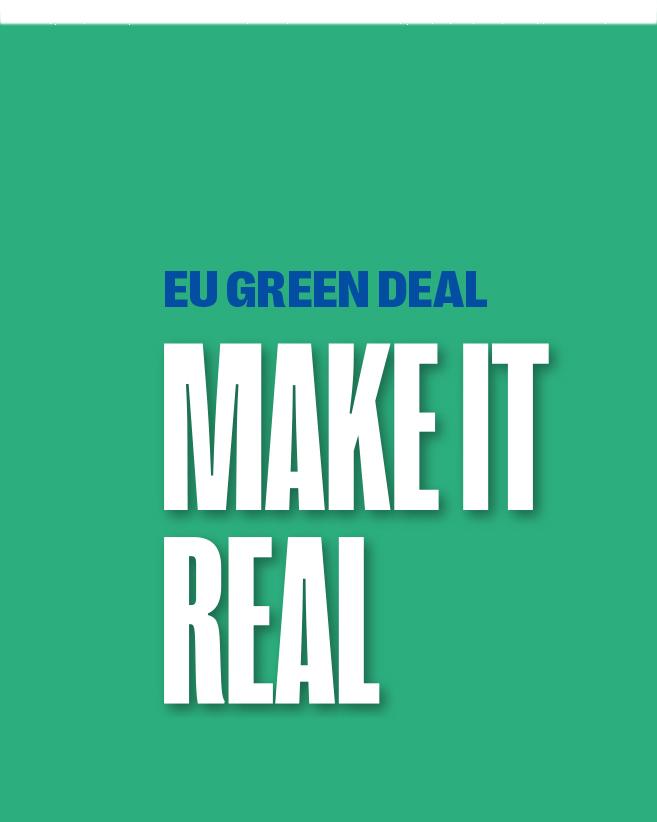
Are you organising an event in May-June related to environmental topics and policies? Could it fall under the EU Green Week 2022 theme: EU Green Deal – Make It Real?
Your event can cover any kind of activity, from conferences and workshops to exhibitions, webinars, networking, and online events. You choose what works best for your goals and target audience!
Make your event an EU Green Week Partner Event!
If you are interested, please read the guidelines here.
Register your event before 15 April 2022 and be part of the change to build a fair, prosperous, climate-neutral Europe by 2050!





